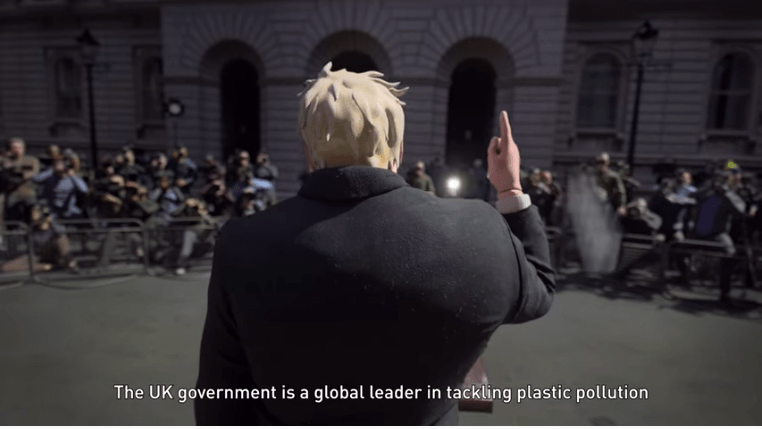Greenpeace has been responsible for many a fatuous stunt over the years, but its latest video has a point. It shows an animated Boris Johnson making a speech outside 10 Downing Street, boasting about his government’s environmental achievements, like banning plastic straws. Meanwhile, plastic waste starts to rain out of the sky, engulfing the Prime Minister as well as all of Downing Street, the Cabinet Office and much of the Foreign Office, too. This immense pile, we are told, is the quantity of plastic waste which we are dumping daily on developing countries.
I’ll take Greenpeace’s word for it that the size of the pile is accurate. But whether our daily waste exports really would cover such a volume, it is indeed a scandal that waste collected for ‘recycling’ in Britain ends up being exported to countries which have an extremely poor record of dealing with plastic waste. This has been known about for years.
The programme of building waste incinerators stumbled thanks in part to Greenpeace stirring up objections
In 2017, a report by the charity Ocean Conservancy concluded that most of the plastic rubbish circulating around the world’s oceans derived from just five Asian countries: China, Indonesia, the Philippines, Thailand and Vietnam.
At the time, Indonesia and China were among the countries receiving large quantities of waste from Britain – waste which was supposedly being recycled, but in some cases had been found being burned at the roadside.
China later banned imports of waste from Britain, but now Greenpeace claims to have found evidence of the same happening in Turkey, a new favourite destination for UK waste. Greenpeace has produced evidence of waste being burned there, too, on open fires.
Yet Greenpeace is in part responsible for the problem, because for years it has opposed the building of energy-from-waste plants – or incinerators, as they are otherwise known. Had we invested more in these plants 20 years ago there would never have been any need to export plastic waste for ‘recycling’ on the other side of the world. What we could not recycle in Britain could have swiftly been disposed of here, close to where it was produced, with two by-products: electricity and inert ash which could be used in the construction industry.
But the programme of building waste incinerators stumbled thanks in part to Greenpeace stirring up objections, using frightening words like ‘dioxins’ – potentially lethal organic compounds which can be produced by burning, are made during industrial processes and which occur naturally during volcanic eruptions.
Sure enough, waste incinerators do produce dioxins, but when they are well-controlled and burning at high temperatures, the emissions are minuscule compared with emissions from other sources. Energy from waste plants in 2017 contributed 0.4 per cent of Britain’s annual dioxin emissions, compared with 3.8 per cent emitted from bonfires and fireworks on 5 November.
To be fair, Greenpeace wasn’t the only block against the construction of energy from waste plants. Another part of the problem was the ‘waste hierarchy’ created by the Blair government in the late 1990s, which assumed that recycling was always a better way of dealing with waste than was incineration – a conclusion it seems to have reached without much proper research. It was that which led to the export of huge volumes of UK waste for ‘recycling’ in South East Asia, without adequate checks to make sure the waste really was recycled rather than dumped.
Greenpeace has identified a problem, yet it has offered no credible solution; indeed it is part of the problem.







Comments